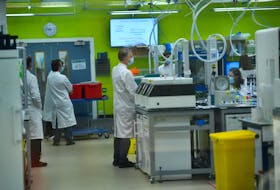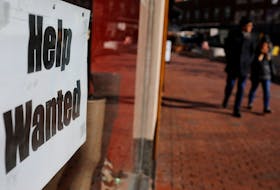LONDON (Reuters) - The reproduction number of COVID-19 in the United Kingdom remains between 0.7 and 0.9, government scientists said on Friday, but has increased in parts of England after lockdown restrictions were eased.
Although the R number for the UK as a whole reflects the same rate of transmission as given last week, in England alone it is slightly higher - estimated to be between 0.7 and 1.
That could mean problems ahead for Prime Minister Boris Johnson as he bids to re-open the economy in phases while avoiding a second peak of infections.
Lockdown in England has been eased more quickly than Scotland, Wales, or Northern Ireland, where powers over measures are devolved.
"Our estimates show that the regional R numbers have increased although they remain below 1 for most of England – this is to be expected as we gradually move out of lockdown," said Yvonne Doyle, Medical Director of the Public Health England (PHE) agency.
The reproduction, or R, number, measures the average number of people that one infected person will pass the virus on to. An R number above 1 can lead very rapidly to exponential growth.
A joint model produced by PHE and Cambridge University said the R number was believed to be below 1 in every region of England with the exception of the North West and the South West.
"There is a challenge in the North West of England that we need to address, and to a lesser degree in the South West," Health Secretary Matt Hancock said at a daily news conference.
"In the South West, the overall incidence of the disease is lower, but the R, as in the rate of change of that, is a little bit higher than elsewhere in the UK."
(Reporting by Alistair Smout; editing by Guy Faulconbridge and Stephen Addison)








